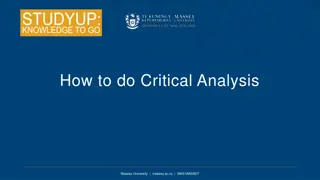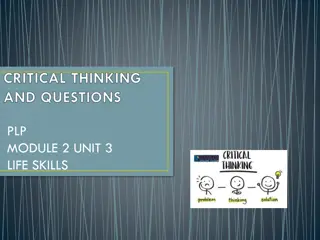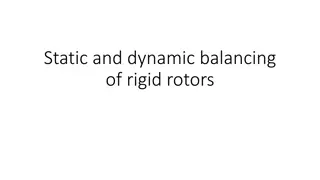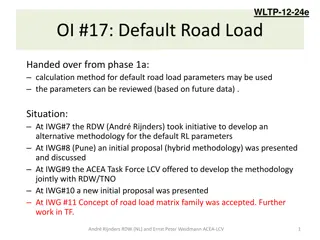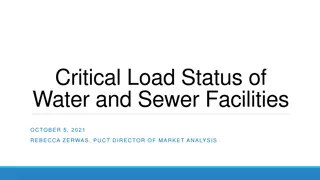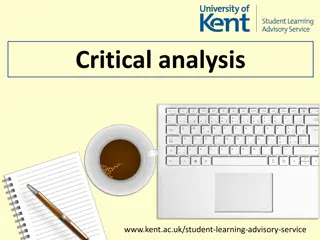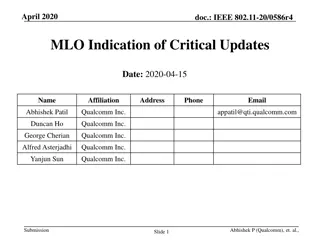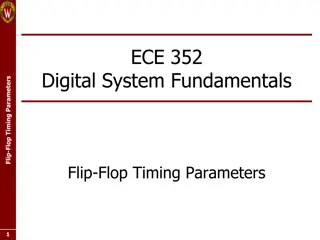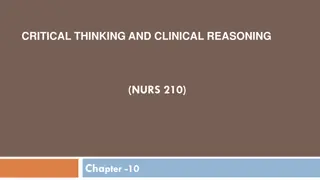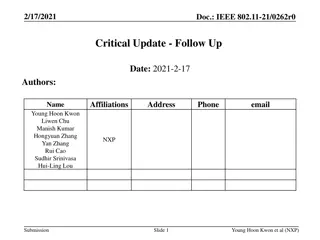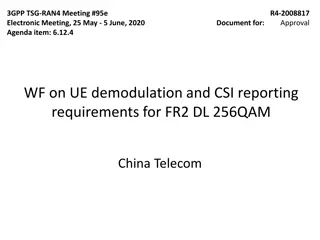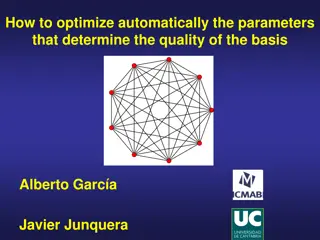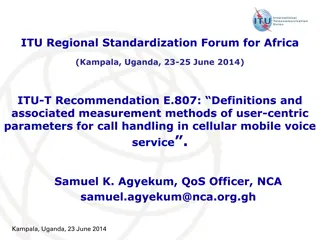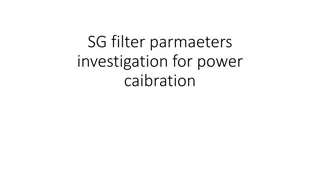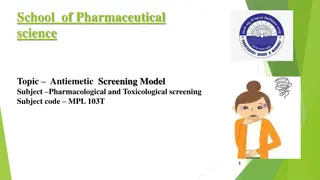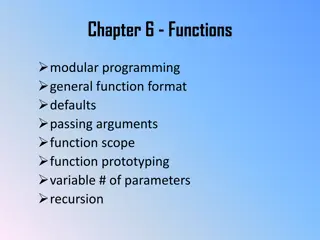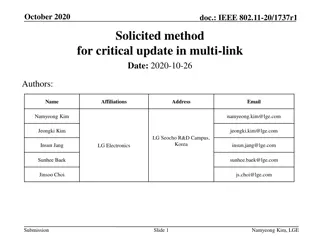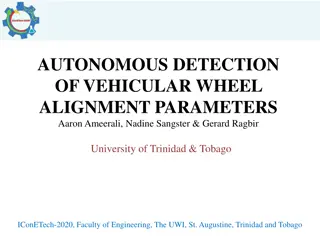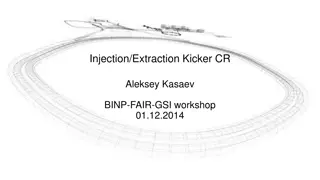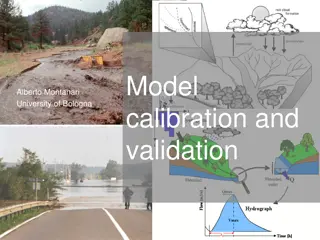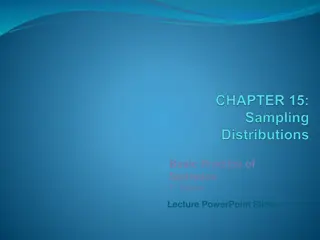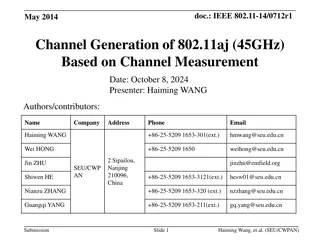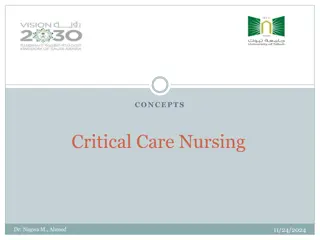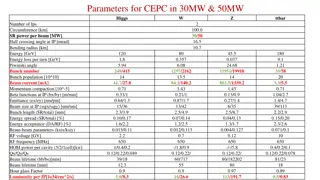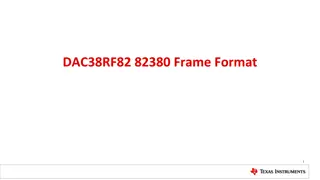Understanding Critical and Non-Critical Incidents in Incident Reporting
Critical incidents, as defined by regulations, are serious events that pose immediate risk to health, safety, or welfare. Non-critical incidents, on the other hand, are minor in nature and do not have serious consequences. Incident reports play a crucial role in documenting occurrences, identifying
0 views • 29 slides
How to do Critical Analysis
Massey University provides valuable insights on critical analysis, distinguishing between description and analysis, evaluating evidence and reasons, and making strong arguments. Critical thinking involves evaluating evidence to reach informed conclusions, surpassing mere understanding. While descrip
0 views • 22 slides
Understanding Critical Incident Stress Management (CISM)
Critical Incident Stress Management (CISM) is crucial for addressing the emotional, physical, and psychological reactions to overwhelming events. This includes definitions of critical incidents, CISM teams, peer support, and crisis response teams. Learn how the International Critical Incident Stress
2 views • 25 slides
Enhancing Critical Thinking Skills Through KWHL Chart
Critical thinking entails questioning and seeking more information before accepting ideas. The KWHL chart method is introduced to improve critical thinking skills, encouraging students to note what they know, what they want to learn, how they can learn more, and what they have learned. Engaging in a
0 views • 5 slides
Understanding Rigid Rotor Balancing and Critical Speed
Explore the concepts of static and dynamic balancing of rigid rotors, determining when a rotor can be assumed rigid based on speed, examining Jeffcott rotor critical speed problems, and discussing the simplest model of rotor systems. Learn about rotor imbalance, free vibrations, natural frequency, a
1 views • 29 slides
- Development of Alternative Methodology for Default Road Load Parameters in Vehicle Testing
- The initiative to develop an alternative methodology for default road load parameters in vehicle testing was led by RDW and ACEA. The process involved multiple meetings, discussions, and proposals, resulting in the acceptance of the concept of a road load matrix family. Various x-factors were adop
2 views • 22 slides
Understanding Critical to Customer (CTC) and Critical to Quality (CTQ)
Quality is determined by meeting customer needs. Critical to Customer (CTC) Flowdown translates these needs into Critical to Quality (CTQ) aspects. This tool helps organizations identify what is critical to meet customer expectations, serving as a communication tool and guiding improvement projects.
2 views • 10 slides
Critical Load Status of Water and Sewer Facilities - Filing Requirements and Impacts
Water and wastewater utilities in Texas are required to provide critical load status information to various entities by November 1, 2021. The Senate Bill 3 of the 87th Legislature outlines the filing requirements and impacts on electric utilities and Retail Electric Providers (REPs). The process inv
2 views • 4 slides
Critical Thinking in Islamic Methodology
Explore the concept of critical thinking in Islam, identifying key skills and understanding the importance of constructive criticism. Delve into the methodology of thinking in Islam that transcends superficial understanding, enabling individuals to distinguish between good and bad, correct and incor
2 views • 12 slides
Mastering Critical Analysis in Higher Education
Developing a critical approach is crucial for higher education students to enhance knowledge, problem-solving skills, and idea development. This skill involves analyzing sources, evaluating credibility, and identifying key elements. Explore the differences between descriptive and critical analysis,
1 views • 11 slides
Understanding Hammett Parameters in Organic Chemistry
The Hammett Parameters analysis, particularly the Hammett Plot, is a valuable tool in studying the electronic effects of substituents on aromatic systems. This linear free-energy relationship approach aids in optimizing reaction conditions and probing reaction mechanisms. Applications of Hammett Par
0 views • 8 slides
Exploring Critical Thinking in a Digital Society
Delve into the realm of critical thinking in the modern era, where information is readily available. Discover how easy access to data impacts our ability to think critically. Explore the importance of critical thinking and its application in today's society. Learn about the six-step critical thinkin
0 views • 32 slides
IEEE 802.11-20/0586r4 MLO Indication of Critical Updates
The document discusses the need for a mechanism in the MLO framework to enable non-AP MLDs to receive updates to operational parameters without monitoring all links. It proposes that each AP of an MLD should provide an indication of updates to another AP's operational parameters. It also outlines ho
0 views • 17 slides
Understanding Flip-Flop Timing Parameters in Digital Systems
In digital systems, flip-flop timing parameters are crucial for proper operation. Synchronous inputs must remain stable before and after the clock edge to ensure correct storage of values. Clock frequency, setup time, hold time, and propagation delay play key roles in signal integrity. By considerin
0 views • 9 slides
Unlocking Critical Reading Skills: Strategies and Techniques
Enhance your reading comprehension through critical reading practices. Understand the definition of critical reading, its importance in the reading process, and learn practical steps to become a critical reader. Discover how critical reading fits into the C.A.R.E. model and the benefits it brings to
0 views • 26 slides
Enhancing Critical Thinking and Clinical Reasoning in Nursing Practice
Nursing students will gain insights into critical thinking techniques and the integration of clinical reasoning in problem-solving. The importance of critical thinking for identifying client issues, implementing effective interventions, and promoting care outcomes is emphasized. Techniques like crit
0 views • 36 slides
IEEE 802.11-21/0262r0 Critical Updates Discussion Summary
The document discusses critical updates related to IEEE 802.11-21/0262r0, focusing on changes in system information for APs within an AP MLD. It addresses scenarios where non-AP STAs receive Beacon frames with direct inclusion events, potential issues with updating critical information, and proposes
0 views • 9 slides
Building Engineering Systems Overview
Explore the standards, requirements, and parameters for building engineering systems, focusing on indoor microclimate conditions, energy efficiency, and optimal parameters for different seasons. Learn about European and Lithuanian standards, as well as specific parameters for school classrooms. Refe
0 views • 8 slides
PDSCH Demodulation Parameters & Requirements Discussion
This document covers the discussion on PDSCH demodulation parameters and requirements for UE demodulation and CSI reporting in FR2 DL 256QAM, specifically focusing on static channel mode, TDL-D channel mode, and TDL-A channel mode. The document also explores rank options, channel bandwidth, PRB allo
0 views • 9 slides
Automatic Optimization of Basis Set Parameters for Enhanced Quality
Learn how to automatically optimize the parameters that define the quality of the basis set with the Simplex code, as detailed by Alberto García Javier Junquera. This process involves compiling the Simplex code, preparing the necessary input files, creating a directory for running the optimization
0 views • 11 slides
User-Centric Parameters for Call Handling in Cellular Mobile Voice Service
The ITU Regional Standardization Forum for Africa held in Kampala, Uganda in June 2014 introduced ITU-T Recommendation E.807, focusing on the definitions and measurement methods of user-centric parameters for call handling in cellular mobile voice service. The recommendation outlines five key parame
1 views • 15 slides
Optimizing SG Filter Parameters for Power Calibration in Experimental Setup
In this investigation, the aim is to find the optimal SG filter parameters to minimize uncertainty in power calibration while avoiding overfitting. Analyzing power calibration measurements and applying SG filter techniques, the process involves comparing different parameters to enhance filter perfor
0 views • 21 slides
Understanding Antiemetic Screening Models in Pharmaceutical Science
Explore the fascinating world of antiemetic screening models in pharmaceutical science, covering topics such as the pathogenesis of vomiting, choice of emetogens, commonly used animals, parameters assessed, screening models, and more. Learn about drug-induced emesis models and the critical parameter
0 views • 25 slides
Understanding Functions in Modular Programming
Functions in modular programming allow for hierarchical decomposition of problems into smaller tasks, with interfaces defining input parameters and output. Each function operates independently, following a specific structure for headers, parameters, and return statements. Proper function prototyping
0 views • 27 slides
Understanding Biomarkers and Maturity Parameters in Petroleum Exploration
Biomarkers and maturity parameters play crucial roles in characterizing source materials and assessing the thermal maturity of organic matter in petroleum exploration. Specific biomarkers and non-biomarker maturity parameters are utilized to determine the relative maturity of source rocks and oils.
0 views • 17 slides
Solicited Method for Critical Update in Multi-Link Environments
This document discusses a method for obtaining critical update information for Access Points (APs) within the same Multi-Link Domain (MLD) in IEEE 802.11 standards. It introduces the concept of Change Sequence fields in Beacon and Probe Response frames to indicate changes in system information for o
0 views • 18 slides
Autonomous Detection of Vehicular Wheel Alignment Parameters
This research focuses on the autonomous detection of vehicular wheel alignment parameters conducted by Aaron Ameerali, Nadine Sangster, and Gerard Ragbir at the University of Trinidad & Tobago. The study addresses the importance of wheel alignment for proper road contact and maintenance, discussing
0 views • 19 slides
Understanding Water Quality Parameters and Characteristics
Water quality encompasses physical, chemical, and biological characteristics that determine its suitability for various uses. Physical parameters like turbidity, taste, odor, color, and temperature affect sensory perception. Chemical parameters such as pH, acidity, alkalinity, and hardness relate to
0 views • 26 slides
Analysis of Bunch Lengthening in CEPC for Different Design Parameters
This study explores bunch lengthening in the Circular Electron Positron Collider (CEPC) for various design parameters, analyzing a 54 km design scheme, a 61 km design scheme, and a 100 km design scheme. The analysis includes the theoretical framework used, equations for bunch lengthening, and conclu
1 views • 15 slides
Magnetic Field Calculation and Parameters for Injection/Extraction Kicker CR
This document provides detailed information on the injection/extraction kicker CR used by Aleksey Kasaev at the BINP-FAIR-GSI workshop in 2014. It includes main parameters of the kicker, magnetic field calculations, ferrite parameters, magnetic field distribution, and time cycles of operation. Addit
0 views • 11 slides
Optimizing Continuous Quantum Control with Variable Parameters
The research delves into solving quantum optimal control problems with versatile system parameters through robust and analytical approaches. It explores optimizing figures of merit in quantum systems with varying Hamiltonian and pulse parameters, showcasing solutions for single-qubit and two-qubit s
0 views • 18 slides
Understanding the Importance of Calibration in Hydrological Modeling
Hydrological models require calibration to adjust parameters for better representation of real-world processes, as they are conceptual and parameters are not physically measurable. Calibration involves manual trial and error or automatic optimization algorithms to improve model accuracy. Objective f
0 views • 12 slides
Understanding Parameters, Statistics, and Statistical Estimation in Statistics
In statistics, we differentiate between parameters and statistics, where parameters describe populations and statistics describe samples. Statistical estimation involves drawing conclusions about populations based on sample data. The Law of Large Numbers explains the relationship between sample stat
0 views • 12 slides
Enhancing Critical Thinking: Strategies and Practices Across Disciplines
Explore the multifaceted dimensions of critical thinking in teaching and learning across various disciplines. Uncover the importance of identifying assumptions, the role of different traditions in promoting critical thought, and practical techniques like the Circle of Voices. Discover how critical t
0 views • 16 slides
Enhancing Critical Thinking in EAP Writing: A Meta-Synthesis Study
Investigating the teaching approaches to critical thinking in EAP writing classes, this meta-synthesis research delves into the importance of critical thinking, key issues in the literature review, defining critical thinking, enhancing criticality in academic writing, and understanding critical thin
0 views • 14 slides
CEPC Main Ring Double Ring Scheme Lattice Design
Lattice design and parameters for the double ring scheme of the Circular Electron Positron Collider (CEPC) main ring discussed at the CEPC AP meeting in January 2016. The outline covers the CEPC parameters for C=100km, including the lattice design and geometry for different regions. Details on energ
0 views • 14 slides
Channel Generation Process for IEEE 802.11aj (45GHz) Based on Channel Measurement
This presentation by Haiming Wang and team from SEU/CWPAN discusses the process of channel realization and generation in the 45 GHz bandwidth. It covers the generation of the channel impulse response, modeling of parameters, statistical measurements, and future work related to the 802.11ad standard.
0 views • 27 slides
Understanding Critical Care Nursing: Principles, Definitions, and Types of Units
Critical care nursing involves providing specialized and individualized care to patients with life-threatening conditions. The concept, principles, definitions, and types of critical care units are discussed, emphasizing the importance of early detection, prompt action, and anticipating patient need
0 views • 20 slides
Parameters and Results for CEPC in 30MW & 50MW
Parameters and results for the Circular Electron Positron Collider (CEPC) operating at 30MW and 50MW including information on the Higgs, W, Z, and ttbar processes. The data covers various aspects such as the number of IPs, circumference, power per beam, bending radius, energy, beam properties, beam-
0 views • 7 slides
Understanding Transport Layer Parameters and Examples
This content delves into the important parameters associated with the transport layer, such as the number of lanes per converter device, the number of converters per device, and the number of octets per frame. It provides examples of how these parameters are configured in different scenarios, showca
0 views • 8 slides

